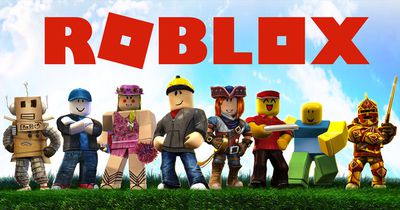The United States Justice Department is investigating Apple for antitrust issues, and Roblox is an area of interest for prosecutors attempting to put together a case, reports The Information.

Investigators are looking for situations where Apple is unevenly enforcing rules for app developers, and Roblox is an area of interest because of the way the app works. Roblox is an online gaming platform that allows its users to play and program games that can be played with others.
Roblox users can create a variety mini games that can be accessed within the main Roblox app, and during the Epic v. Apple trial, Epic argued that Apple had given Roblox a "free pass" while preventing other apps from doing something similar.
Epic Games equated Roblox to the Epic Games Store, an app that would serve as a third-party alternative to the App Store, offering users access to games without paying Apple's fees. As Epic offers access to major games created by other developers, it's not quite the same as the Roblox games created by Roblox users, but the Roblox app is now in the spotlight.
After coming up in the Epic v. Apple trial, Roblox altered its website to clarify that it offers "experiences" instead of "games," a change made after App Store executive Trystan Kosmynka explained that Roblox did not violate App Store rules because Apple did not view Roblox content "as a game." Kosmynka said that the "experiences" within Roblox were similar to "the experiences in Minecraft," another game where users can build mini game-like content.
The Department of Justice has been taking a look at details brought up by the Epic v. Apple trial and recently asked Roblox and other developers to clarify the difference between a game and an experience. Roblox has been asked to explain why it changed the language on its website.
Apple Arcade appears to be a topic of interest as well, with investigators asking developers whether the Apple Arcade game store has made it more difficult for developers to compete with Apple. The DoJ is also looking into complaints that Apple has restricted location access for third-party apps while still allowing its own apps and services full access to location data.
Back in October, the DoJ accelerated its antitrust probe into Apple, and it is likely that Apple will be facing an antitrust lawsuit. The DoJ is still gathering information at this time, and it's not clear when Apple could face a legal battle.
The App Store is undergoing some changes at the current time that will impact any antitrust investigation. Apple has already agreed to allow developers to use communication methods like email to advertise payment options available outside of iOS apps, and Apple may be forced to make even more drastic App Store updates this week.
In the Epic v. Apple ruling, the judge overseeing the case ordered Apple to stop restricting developers from including "in their apps and their metadata buttons, external links, or other calls to action that direct customers to purchasing mechanisms." Apple asked for more time to implement the changes, but was denied. The issue has been kicked over to a the Ninth Circuit appeals court, and if Apple does not get a stay by December 9, the company will need to comply with the original ruling.





















